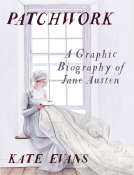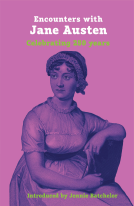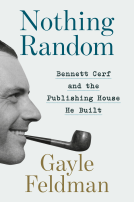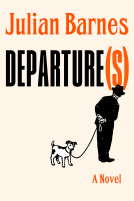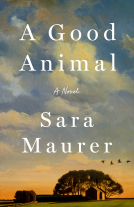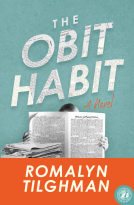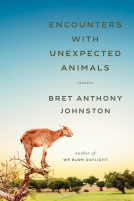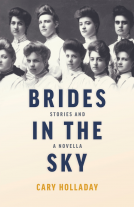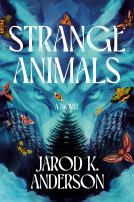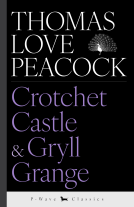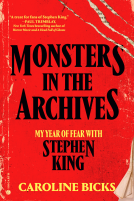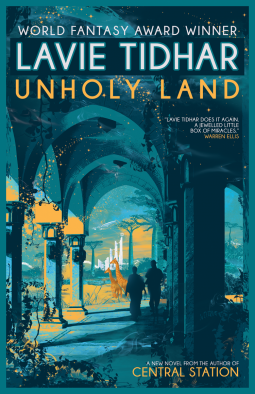
Unholy Land
by Lavie Tidhar; Lavie Tidhar; Lavie Tidhar
This title was previously available on NetGalley and is now archived.
Send NetGalley books directly to your Kindle or Kindle app
1
To read on a Kindle or Kindle app, please add kindle@netgalley.com as an approved email address to receive files in your Amazon account. Click here for step-by-step instructions.
2
Also find your Kindle email address within your Amazon account, and enter it here.
Pub Date Nov 16 2018 | Archive Date Apr 22 2019
Talking about this book? Use #UnholyLand #NetGalley. More hashtag tips!
Description
The author of the critically acclaimed, Campbell Award-winning Central Station returns with a subversive new novel evoking The Yiddish Policemen's Union andThe City and the City.
When pulp-fiction writer Lior Tirosh returns to his homeland in East Africa, much has changed. Palestina—a Jewish state established in the early 20th century—is constructing a massive border wall to keep out African refugees. Unrest in the capital, Ararat, is at fever pitch.
While searching for his missing niece, Tirosh begins to believe he is a detective from one of his own novels. He is pursued by ruthless members of the state’s security apparatus while unearthing deadly conspiracies and impossible realities.
For if it is possible for more than one Palestina to exist, the barriers between worlds are beginning to break.
A Note From the Publisher
Advance Praise
Praise for Unholy Land
An NPR Best Book of 2018
A Library Journal Best Book of 2018
A Publishers Weekly Best Book of 2018
A Barnes & Noble Favorite Science Fiction and Fantasy Book of 2018
Locus Recommended Reading List
2018 SCKA Award nominations
2018 Sarah Anne Langton is a British Science Fiction cover Award finalist
“Lavie Tidhar does it again. A
jewelled little box of miracles. Magnificent.”
—Warren Ellis, author of Gun Machine
—Publishers Weekly
[STARRED REVIEW] “On the suggestion of his agent, pulp fiction writer Lior Tirosh flies back to the home he hasn't seen since childhood: Palestina, an East African Jewish state formed in the early 20th century. He soon discovers a lot has changed. In the capital, Ararat, unrest is at an all-time high. Palestina is creating a border wall to deter refugees from entering. Lior then learns from an old childhood friend that his niece Deborah is missing and takes on the persona of one of his own detective novel characters as he searches for her, only to be hunted by his own state's security. VERDICT Shifting perspectives will keep readers trying to catch up with this fast-paced plot involving incredible twists on multiple realities and homecoming. This latest from Campbell and World Fantasy Award winner Tidhar (Central Station) is fascinating and powerful.”
—Library Journal
[STARRED REVIEW] “Unholy
Land is a wonder and a revelation—a work of science fiction
capable of enthralling audiences across the multiverse.”
—Foreword
“Adventurous readers will appreciate this well-written and
ambitious book. It should find a place at any library that offers high-quality
literary fiction.”
—Booklist
“Tidhar has turned a suspenseful adventure tale into a complex meditation on the possible paths of modern Jewish history.”
—Chicago Tribune
“5/5 stars. A world (worlds) of thoughtfulness, suspense, imagery, and beautiful prose. Highly recommended.”
—Fantasy Literature
“Unholy Land is a wildly inventive and entertaining novel that moves at a breathless gallop . . . [Tidhar] has already staked a claim as the genre’s most interesting, most bold, and most accomplished writer.”
—Locus
“Extraordinary, confronting,
intriguing. Unholy Land is a dream of a home that’s never existed, but
is no less real for that: a dream that smells like blood and gunpowder. It’s
precisely what we’ve come to expect of Tidhar, a writer who just keeps getting
better.”
—Angela Slatter, author of the World Fantasy Award-winning The Bitterwood
Bible
“There are SFF writers. There are
good SFF writers. And there is Lavie Tidhar. In a genre entirely of his own,
and quite possibly a warped genius, he rummages in the ruins of our centuries
and our genres and makes out of them something strange, dark and utterly
unique. There is no one like him writing in genre today. This [Unholy Land]
is a twisted piece of alt-history/geography that refuses to go where lesser
writers would drive it. Bold and witty and smoky, it plays games and
coquetries, makes dark dalliances and will leave you dazzled and delighted.”
—Ian McDonald, author of Time Was and Luna: Wolf Moon
“Lavie takes us through a
haunting, mesmerizing Judea, across multiple
timelines into the promised night shelter in British East Africa. Here is an
expedition at once proposed and taken, an alternate reality in which the
holocaust is averted but the mechanics of displacement remain the same, where
people are oppressed and oppressor at the same time. A genius, dreamlike
fantasy for those who slip across might-have-been worlds.”
—Saad Hussian, author of Escape from Baghdad
“Unholy Land is a stunning achievement. It is packed to the brim with engaging ideas and features a captivating story . . . beautiful and thought-provoking.”
—The Speculative Shelf
“By combining spatiotemporal mind games reminiscent of Steven Hall’s The Raw Shark Texts with a cosmopolitan wit evocative of Graham Greene’s screenplay for The Third Man, Lavie Tidhar has given us a mystically charged, morally complex vision of Theodor Herzl’s famous Jewish state that might have been.”
—James Morrow, author of The Last Witchfinder and Shambling Towards Hiroshima
“Lavie Tidhar’s daring Unholy Land brilliantly showcases one of the foremost science fiction authors of our generation.”
— Silvia Moreno-Garcia, World Fantasy Award-winning editor and author of Certain Dark Things
“Full of ideas and unafraid to tackle big, controversial, important issues. Warren Ellis compares him to Michael Moorcock in an afterword, and like Moorcock, Tidhar writes books that are unpredictable and experimental, consistently and reliably surprising, yet always readable and engaging.”
—Interzone
“Loaded with thought-provoking takes on identity, the fluidity of reality, and weighty moral questions.” —Theirstein.net “A powerful meditation on the ethics of history and the power of borders . . . Unholy Land is a call to imagine and fight for alternatives.”
—World Literature Today
“Sophisticated and assured.”
—Locus
“Lavie Tidhar is the science fiction writer to be discovered now.”
—Italian Esquire
“Tidhar’s magic touch is the result of a very concise and evocative prose, an ingenious imagination, and the ability to poke the reader’s social conscience . . . Any fan of good speculative fiction with a pitch of noir, some pulp hints and a lot of sense of wonder will enjoy Unholy Land.”
—Sense of Wonder
“If you enjoyed Central Station, you’ll recognize Tidhar’s beautiful prose and lush imagination . . . Unholy Land is without a doubt one of the best books I read this year and one I will revisit numerous times in the future. Highly, highly recommended”
—The Curious SFF Reader
“This was a thoroughly engrossing, entertaining and thought-provoking novel which, like Lavie Tidhar’s previous book ‘Central Station’, provides a cross-section of a marvellous world, though in this case a less fractured picture than that previous book. Part physics, part mysticism, it conveys a truly compelling multicultural tale of discovery and mystery.”
—SF Crowsnest
“With gentle wit and strong alternate history, Tidhar pokes at the folly of humanity and wonders whether even if historical calamities are avoided, we’ll just come up with new ones to replace them. Threaded with themes of identity and belonging, Tidhar once again delivers an intriguing novel with multiple realities and hard-boiled detectives.”
-Geek Dad
“I’ve long been convinced of Tidhar’s genius, and Unholy Land just further cements that in my brain. What Tidhar writes today is where science fiction will go tomorrow. Unholy Land is a stunning achievement, a masterful and thought-provoking novel.”
—Battered, Tattered, Yellowed, & Creased
“Unholy Land by Lavie Tidhar took me on a crazy ride across genres and space and time and I want to do it all over again.”
—The Literate Quilter
“An unconventional book, from an author who is wildly imaginative and innovative. The prose is wonderful, the ideas are fascinating, and the whole book is very sensual, in that it evokes all your senses.”
—We Three Readers
“Award-winning fiction… Beautiful, lyric prose… Dramatic, cathartic science fiction stories. That’s the arena that author Lavie Tidhar occupies when he writes.”
—Recursor
“The blend of politics, allegory, and alternate-history detective novel is unconventional yet weirdly wonderful.”
—World
Praise for Central Station
2017 John W. Campbell Award winner
2018 Neukom Institute Literary Arts Award winner
2017 Arthur C. Clarke Award nominee, Best novel
2016 British Science Fiction Award nominee, Best novel
2017 Geffen Award, Best Translated Science Fiction Book nominee
An NPR Best Book of 2016
A Tor.com Best Book of 2016
An Amazon Featured Best Science Fiction & Fantasy Book
A Kirkus 2016 Best Science Fiction and Fantasy pick
A Barnes and Noble Best Science Fiction and Fantasy of 2016
A UK Guardian Best SF & Fantasy Book of 2016
[STARRED REVIEW] “Readers of all persuasions will be entranced.”
—Publishers Weekly
[STARRED REVIEW] “A fascinating future glimpsed through the lens of a tight-knit community.”
—Library Journal
“Tidhar scatters brilliant ideas like pennies on the sidewalk.”
—NPR Books
“Beautiful, original, a shimmering tapestry of connections and images.”
—Alastair Reynolds, author of the Revelation Space series
“If you want to know what SF is going to look like in the next decade, this is it.”
—Gardner Dozois, editor of the best-selling Year’s Best Science Fiction series
Praise for the World Fantasy Award-winner, Osama
“Exceptional”
—World Literature Today
Praise for The Violent Century
“A tour de force”
—James Ellroy, bestselling author of L.A. Confidential
Praise for A Man Lies Dreaming
“A twisted masterpiece”
—Guardian
Praise for The Bookman
"A steampunk treasure”
—SFF World
Marketing Plan
· Promotion at major trade and genre conventions, including the World Science Fiction and World Fantasy conventions; ALA; the Nebula Awards; and Readercon
· Promotion targeting Israeli, British, and Middle Eastern-themed online media, including NPR, the New York Times, Washington Post, NYRSF, UK Guardian, and the Chicago Tribune
· Planned book giveaways on Goodreads, SF Signal, and other online outlets
· Promotion on author's social media (@LavieTidhar; facebook.com/lavietidhar)
Available Editions
| EDITION | Other Format |
| ISBN | 9781616963040 |
| PRICE | CA$23.95 (CAD) |
| PAGES | 288 |
Average rating from 50 members
Featured Reviews
 Reviewer 492564
Reviewer 492564
Using the Kabbalah's concept of sefirot, or mystical and creative forces that change the world, as a framework, Tidhar creates multiple tantalizing and richly detailed worlds through which his characters slip. Following three characters who have slipped between various worlds, in which a Jewish homeland has been established in differing places and through differing means, the novel is both a mystery and a meditation on the appeal of "what-ifs" and "might-have-beens" to readers, writers, and politicians.
 Brad H, Reviewer
Brad H, Reviewer
Unholy Land by Lavie Tidhar
My rating: 5 of 5 stars
Lior Tirosh, the main character in Lavie Tidhar's novel, may as well be the author. I mean, the author certainly seems to think so, both being more or less a self-described semi-successful pulp-fiction writer of SF, and like writers being in their own stories, they tend to go absolutely nuts on the imagination bits.
Well, at least, the good ones do. And guess what? He's one of the good ones. :)
This book wears several hats and unlike a normal hat-trick, this one does it gently enough that we barely even realize we've gone from a noir mystery in an alternate history to jump headlong into an existential crisis across multiple Earths where neither memory, history, or selfhood is set in stone.
Add to that the wonderful little twist where this is a history where Isreal never happened, where the grand refuge takes place in Africa... a thing that really and truly MIGHT have happened... throw in the Zohar and wonderfully interesting quasi-religious ideas that drive the Qabbalah, including the words of God and reading the Torah from a prism of different experiences and world-building viewpoints, and we've got a much deeper reading experience than anyone might assume from a first glance.
In fact, even tho the actual tale is fun to follow and only gets more and more interesting even as it amps up the bloodshed and deeper mystery, it deserves another read-through for the subtext. It's not just about the Jewish condition although that is a big part. It's about identity on a much deeper level.
I only read Central Station before this and both are very different beasts, but neither of them is lightweight or pulp in nature. Indeed, I'm rather thrilled at how many levels both succeeded.
Unholy Land is probably BETTER than Michael Chabon's Yiddish Policeman's Union, by the by. The other had them all retreat to Alaska and this one had them wind up in Africa, but the true joy isn't in the location. It's in everything. :)
Oyou to Netgalley for the opportunity to read this thought provoking book. The story's premise is based on an expedition taken in the early 20th century, the goal of which was to found a Jewish homeland in East Africa. In the book itself a man, whose name is so close to the author's that we know we are entering territory that overlaps Tidhar's life, leaves Berlin on a trip to see his ailing father in Palestina, near Uganda. Tirosh is an author of fantasies and mysteries and as he travels he seems to suffer an odd sort of memory loss. Once he reaches the land where he was born he becomes enmeshed in unexplained murders and intrigue. There is social unrest surrounding a wall being built to keep the former natives of the land out of what is now Palestina. The story asks questions about boundaries, particularly the artificial ones of countries or constructed walls. At one point a question is asked of the main character: Do you think the world is real? And if there is more than one reality, whose to say which one is the real one or the better one?
Tirosh is asked why he writes fantasy. He replies that "stories don't predict the future....(they warn) about what the future could become." In the afterward the author reminds us that as much as we readers and writers love our fantasies with often hopeful solutions to human struggles, we live in this world with no easy answers.
Unholy Land was well written and even when I wasn't sure whose voice was telling the story I was totally absorbed. I highly recommend this book and suggest readers keep their eyes open for surprising clues throughout the book.
 Reviewer 230978
Reviewer 230978
Unholy Land by Lavie Tidhar- This book is a historical fantasy based on the premise of "What If", and concerns how small changes can make a lasting difference as they alter the Future. The author in his introduction explains that when he was growing up in Israel, there were folk tales told about an effort to build a Jewish State in Eastern Africa that never came about. Then he begins his story in the fully developed African nation of Palestina, in the present day, which also has no Israel, and the German Reich is alive and well. The main character, a pulp writer is searching for his niece, stumbling around a country he grew up in but barely remembers. At every turn he is followed by people from different backgrounds and allegiances. Mostly they want to kill him, but he does not know why, and he doesn't understand why he has confusing memories of a different world that appear then fade away. He finds that there are many possible futures and he can slide in and out of those worlds while still being pursued across a ghostly landscape.
I doubt that I'm doing justice here to a very entertaining and engrossing story. The concepts are intriguing and Lavie Tidhar's comfortable, stylish writing is well paced and engaging. He changes POV quite often and it can be a bit jarring at first, but only the important characters get their own reality. You get used to it, so you know at once who is speaking. As with his last book, Central Station, I recommend this book.
 Joseph K, Reviewer
Joseph K, Reviewer
There was a time in my life when a book described as "literary science fiction" would have caused me to run at full speed in the other direction. I don't run away from it any more, but I don't necessarily run toward it, although it can be argued that most of what I read and review these days is much more literary than I might be willing to let on. But I will run toward the work of Lavie Tidhar, whose work contains literary qualities that would make your high school English teacher (well, mine, anyway, since in the mid-1970s genre fiction was to be avoided at all cost) nod with approval while at the same time paying homage to the ideas of science fiction of old. Tidhar's last novel, CENTRAL STATION, was a novel that nodded toward the old traditions while telling the story with modern literary sensibilities. And he's done it again with UNHOLY LAND.
The novel uses the actual historical event of an expedition to Africa to take a look at some land that was under consideration to be a site for a Jewish homeland. In this way, it is somewhat reminiscent of Michael Chabon's THE YIDDISH POLICEMAN'S UNION, but that idea of an alternate Jewish settlement is about where the similarities end. While Chabon's book remains grounded in reality - only qualifying as genre because of its alternate history aspect (although I would argue that the book is not really science fiction in anyway, although it was a brilliant novel) - UNHOLY LAND, when all is said and done, takes the reader in a completely different and unexpected direction that is unmistakably genre.
At the beginning of the novel, pulp author Lior Tirosh is traveling from Berlin to his homeland, Palestina, in East Africa. Things are a little bit odd right at the very beginning, but when he goes to talk with his niece, he discovers she is missing - well, missing as far as he is concerned, anyway; no one else seems to be worried about her. Thus, the novel starts out as a fairly straightforward detective story in an alternate history setting. And yet, it is not all *that* different fromour world of today. Palestina is in conflict with a neighboring state, and a wall is being built to keep intruders out (I don't for a minute believe that Tidhar was thinking about the current situation in the United States when he wrote this, but it sure makes for an interesting thought experiment).
There's a lot of stuff going on here that is very meta in nature. Tirosh feels as if he himself is a detective in one of the novels he's written. Tidhar leads the reader into thinking that Tirosh is actually Tidhar himself; there is mention of Tirosh having written little, unknown books such as OSAMA and CENTRAL STATION. He even refers to looking for a book called UNHOLY LAND in a shop, a book that he himself wrote.
But, as I said earlier, there is much going on that leads the reader and Tirosh to believe that something is amiss, and this is where the book changes from a detective story to an all-out interdimensional genre tale. The book quite literally changes from one story to another in such a way that is seamless. It's one thing, and all of a sudden it's another. At the beginning of the novel, I was wondering what it was Tidhar was getting at; it certainly didn't seem like genre to me. It was a bit slow to get moving as well. But once that twist is revealed and the transition made, the book was really a page-turner as it made a mad dash toward its completion.
Once again, Tidhar has written a gem. It truly is a book that your high school teacher would approve of you reading. But since when have you needed her approval to read anything? You'll give yourself all the approval you'll need when you've finished reading it.
I closed the book--or rather swiped to the last page on my iPad--and my first thought was, I want to read this again. Now.
Because Unholy Land by Lavie Tidhar took me on a crazy ride across genres and space and time and I want to do it all over again.
I read Tidhar's Central Station last year after my son raved about it. So I was expecting Science Fiction. But Unholy Land transcends genre, encompassing alternative history, noir mystery, and time-travel sci-fi, with social and political commentary (not so unusual in sci-fi, of course), so in the end, it transports the reader into an imagined alternative reality AND reflects on contemporary world politics. Add the "wink wink" self-referential nods and existential discussions on the nature of reality, we also get humor and philosophy.
In one work of fiction. And I think I missed some things.
So, yes, I want to read it AGAIN.
Tidhar was inspired by a true story of forgotten history. In 1904, the Zionist movement leader Theodor Herzl was offered land in Uganda as a Jewish homeland. Three men went on an expedition to survey the territory. One became separated and at journey's end, reported fertile land and while the other a saw desert. The idea was abandoned. Tidhar's novel considers the implications of establishing a Jewish homeland predating the Nazi regime.
The main character Lior Tirosh (note the character's name, so like Lavie Tidhar) slips through to an alternative reality. He doesn't realize what has happened, but he is tracked by two people who have been through the portal and lived in other worlds. He becomes embroiled in a battle to control the portal and prevent overlaps in realities.
Tirosh questions, what is history if not an attempt to impose order on a series of meaningless events, just as a detective must piece together a story from conflicting tales.
Don't expect escapist genre fiction, readers, for in Unholy Land we learn in all the worlds possible walls will be built and some will be cast into the outer darkness.
"Lavie Tidhar is a clever bastard, and this book is a box of little miracles." Warren Ellis, Afterword Unholy Land
I received a free ebook from the publisher through NetGalley in exchange for a fair and unbiased review.
This book works in a meta cognitive fashion, sweeping and engaging in a cultural sense. There is fine characterization here with a protagonist like no other.
There are notes or writers like Orhan Pamuk, but also uniqueness.
Lavie Tidhar – Unholy LandLavie Tidhar follows up his 2016 Mosaic Novel/Short Story collection Central Station (John W Campbell winner, Clarke shortlist, and book of the year for me) with Unholy Land, an alternative history concerning a Jewish Homeland in Africa which turns out to be much more more.
It's not as light, not as dancingly sparkling with ideas and concepts as a lot of the former is, but at the same time it's maybe heavier, worthier, loaded with thought-provoking takes on identity, the fluidity of reality, and weighty moral questions which are exhibited rather than discussed or preached.
It starts simple enough, though – we follow one Lior Tirosh (a thinly disguised alter ego, it appears), a moderately successful writer of 'inconsequential fantasies' in some personal crisis, as he is headed to Ararat City, Palestina. Which is set in Africa, in the Great Rift Valley. And so we know we are in an alternative history – or, to be more precise, in a world where the Wilbush expedition to British East Africa returned a different report, had a different outcome, and a Jewish state, a Nachtasyl, was created instead of the country we are familiar with. At first this is, like all such conceits, mightily disorienting. We see Palestinians, who speak Judean, and a culture which inevitably has taken on parts of the area it has settled in and the people it displaced, whilst retaining a lot of the tensions and drivers that brought it here.
But back to Tirosh – he is here to visit his ailing father, a general and famous figure, we learn later on. But instead he gets, more or less from the go, caught up in strange happenings involving Border/Secret police, multiple agencies following him, murder (it's actually an attempt on his life which catches an acquaintance), a disappeared niece who campaigned for the rights of the native population, a builder who builds the wall designed to keep the terrorists and suicide bombers out... it's a fascinating and dizzying world, and you get absolutely no time to get used to it before the action kicks off.
“Then he asked you if you thought the world was real”
And just when you think you know where you are with the premise and the setting then the story takes a sharp turn into the leftfield. Tirosh is a damaged man – not just from the loss of his son and his wife, but there is something else. He comes from “Outside”. He has visions of other worlds, of concentration camps. We see several agencies who work across different worlds, across possibilities. We learn that the wall has other aims than simply keeping Suicide Bombers out. That time can run differently on the Outside. There is more, so much more, and most of it only gets hinted at, is never explained or barely shown. And boy would I have wanted to see, learn, read more.
“The world is the sum of what it could be, what is might have been, and how it could have been”
The story is told through the eyes of the protagonists – and the viewpoint frequently shifts fluidly between them which can be rather disorienting; and occasionally it does so in ways evidently designed to actively mislead the reader. Tidhar also heavily uses foreshadowing, giving the reader (sometimes misleading) information advantages, again occasionally, purposefully, and skilfully misleading us.
I was surprised at how little there is here in terms of looks, skin colour, racial origin. It's not that book entirely omits this, but given the setting I would have expected more variety warranting comments, descriptions, and assignations. This is a minor quibble – what bothered me more was that we learn so little about the parallel worlds, the sephirot, and how they hang together; how people travel between them; who this mysterious Border Agency is which seems to look after some of it; or also the rather mythically infused final denouement, which I found to be a bit of a let-down after all that had transpired.
Still, this is great and all too short book, delivering much more than it originally promises, and for this alone it deserves your attention.
Lavie Tidhar is an Israeli-born writer, who has spent long periods of time in South Africa, Laos, and Vanatu, and who is now living in London. He writes across genre boundaries, and is the author of the World Fantasy Award–winning novel Osama, of the Jerwood Fiction Uncovered Prize-winning A Man Lies Dreaming, and the Campbell Award-winning Central Station, in addition to a number of other books and many short stories.
More Lavie Tidhar
Title: Unholy Land
Author: Lavie Tidhar
Reviewer: Markus
Reviewer URL: http://thierstein.net
Publisher: Tachyon
Publisher URL: http://www.tachyonpublications.com
Publication Date: October 2018
Review Date: 180925
ISBN: 9711616963057
Pages: 196
Format: ePub
Topic: Alternate History
Topic: Parallel Worlds
Thanks to the publisher for the review copy.
 Bill C, Reviewer
Bill C, Reviewer
I absolutely loved Lavie Tidhar’s Central Station (and was not alone in that), and while his newest, Unholy Land, didn’t blow me away quite to the same extent, it kept me on the couch in “don’t talk to me I’m reading” and “uh-huh, uh-huh, ya don’t say, uh-huh” mode all afternoon while my family just rolled their eyes and gave up, as they know to do when all the signs of being engrossed in a great book are manifest (luckily, they live those moments as well so it’s a fond eyeroll . . . )
The novel is set in an alternate universe setting where the Jewish homeland of Palestina appears not in the Middle East but in East Africa, a homeland formed before the Final Solution occurred (a forward explains how this is based on an actual idea pre-dating the creation of Israel). The book follows three characters: the main character Lior Tirosh via typical third-person narration, a ruthless security agent via first-person, and a mysterious third actor via second person.
Lior Tirosh (suspiciously similar to Lavie Tidhar) is a middling science-fiction and mystery writer who had left Palestina for Europe long ago but has now returned. The country is in turmoil, with terrorist attacks, protests, and the construction of a huge wall to keep out refugees (those who had been expelled from the land so Palestina could be formed). In short order Lior witnesses a horrific bombing, is caught up in a murder, and learns his niece, an anthropology/folklore student who’d been protesting against the wall, is missing. Things actually spiral downward from there.
But things had begun to go strange well before then. The reader is teased from the beginning by all sorts of weird tidbits: the way Tirosh’s memories don’t seem to cohere, vaguely foreboding hints about his young son, an odd emphasis on the word “outsider,” references to “strange sightings of ice age carnivores the locals had named Ngoloko or Kerit . . . ,” or to how “organisms can disguise themselves visually in a foreign environment.” All of these, combined with the disorienting and often sudden shifts in POV, including that unnamed second person “you,” create a wonderfully surreal, unnerving, and compelling atmosphere, where, similar to Tirosh, the reader is never ever on firm ground.
And it all creeps in at such a wonderfully glacial pace. Such as that reference to his son that you’re so smugly sure you know where it’s going, what Tidhar is doing there, but then it takes a little sidling hop and suddenly you think you know but then again, maybe . . . and then the light slants in a different way, and then there’s a change in temperature, and then and then and somehow, in as dully mundane and banal a fashion as you can imagine (think airports, think bureaucracy) you’re in a completely different world than you thought you were.
That sense is both metaphorical and literal, because — and since it’s noted on the back of the novel, I don’t feel it’s too spoilerish to say this — eventually what comes clear is this is not simply an alternate history but a book set in a multiverse (the “sephirot”) full of alternate histories, complete with people who can travel between them — some more easily than others, some more intentionally than others. Such a set-up allows Tidhar to explore several themes: the creation and guarding of borders, questions over do walls shut out or shut in, ethical conundrums over what acts are allowed if done with good intentions, the old stand-by of is it OK to kill some to save more, the construction of memory and self, the desire to belong somewhere, the bond between people and land, determinism, the possibility that different historical choices would lead to different results (or not), and more. And of course, explorations as well of the political morass that is the Middle East, though such questions can easily be broadened to conflicts around the world and throughout history.
It’s a heady mix and one can easily linger a while to think such moments through as they appear on the page. And it’s not the only esoteric facet, as one could argue for a metafictional point here as well, what with the main character being an author, one oddly similar to his creator, and one who muses on or is questioned about the impact of writers in the world. And after all, what do authors do but create a sephirot of their own?
But I don’t want to make it sound as if Unholy Land floats along in some airy realm. Tidhar keeps things grounded by offering up alongside the more esoteric aspects of the book an old-fashioned, solid mystery — what happened to Tirosh’s niece — which, combined with a ticking bomb scenario wherein someone is trying to either break down the walls between worlds or destroy the worlds, keeps things gripping throughout. You read just as much to find out what happens as you do to explore the themes.
And then there is the language, which is vivid and precise and always adapted to the moment. As just one representative illustration (out of many to choose from), here’s an early segment as Tirosh’s plane takes off for Palestina:
The flight attendants went through the safety routine. The inside of the plane smelled of warm plastic, stale breath. There was a piece of gum struck to the underside of the food trey. The engines thrummed alive. Tirosh watched small grey figures through the window, moving with a clear but unguessed at purpose. He watched the runway move past and tensed as the plane began to accelerate, then took to the air with a bump. The airport grew wider before growing smaller. For some moments there was a flash of fields, the density of a city, the silver snail trail of cars on a highway. Then they entered the clouds the world turned white and grey, and fine strands of fog drifted past outside the wind. Tirosh put his head back and closed his eyes.
Take a look at the progression here. We begin with the routine. Literally, the same old same old safety talk. We get the concrete smell of stale breath, the concrete mundane image of gum stuck to a tray. Dull language, dull syntax (sentence begin with The, The, There). Then we get “thrummed” and a bit of personification with the engines coming “alive.” Then we get mysterious “grey figures” doing who knows what. And once the plane has left the ground, the prose shifts from, well, prose to a more lyrical poetry. The alliteration of “flash of fields.” The near rhyme/echo of “density-city.” The alliteration, rhyme, and metaphor of “silver snail trail of cars.” The consonance and assonance of “white-fine-outside, strands-past, fine-fog-drifted, that strings of D sounds.” All of it ending with Tirosh, and us, in a world removed from reality, a drifting, untethered, non-distinct, blurry world of white and grey. That is an author in full control of his craft. And as noted, this isn’t an isolated example (I haven’t even touched upon the maddening teases of some of the other worlds: “the mechanical warriors under the banner of the Crimson Emperor in Jund Filastin,” “the fish-frog men abomination of Ash-Sham,” “the green swamp villages of Samaria where the Awful Ones live”).
I read Unholy Land straight through in one sitting, blowing off work, family, and the first few minutes of dinner to do so. And had I not finished I most likely would have just skipped dinner entire until I did. For such a short book — under 300 pages — Tidhar crams in a world (worlds) of thoughtfulness, suspense, imagery, and beautiful prose. Highly recommended.
In Lavie Tidhar’s new novel Unholy Land, a suspiciously similarly named pulp writer Liro Tirosh returns to his homeland of Palestina, a Jewish state on Lake Victoria between Kenya and Uganda. Tirosh has been out of the country, living in the Reich for years, in a Germany that never perpetrated a Holocaust. But his father, a larger than life national figure, is dying, so he returns. He presses through his dreams of Berlin in the plane above Palestina, and then through customs, where he is interrogated by the secret police, and then pushed out into the strange, bright streets of his homeland.
Revisiting one’s home town, one’s native country, after a long period always causes a sense of dislocation: the smell of things and the quality of the light tend to remain the same, but the buildings, the cars, often the very scale of the place feels off, forcing the memory to stutter and warp. Tirosh’s uneasy reintegration to the place of his origin seems the usual kind of dislocation—until he is visited by an old classmate, who barges into Tirosh’s hotel room and harangues him with his very presence. Tirosh knew him as young man, but now he’s run to the thin-haired middle age, both thicker and thinner than he remembers.
The guest drinks Tirosh’s hotel liquor and rants about how Tirosh’s niece, the daughter of his war hero brother, has gone missing amid her investigations of the folklore of the wall, The Wall, the wall—the one going up now to partition the Jewish state from the displaced African populations around it. And then, the old classmate dies, poisoned, and Tirosh is blamed for it, and arrested. Even though the secret police were watching Tirosh, they missed both his friend’s entrance into the hotel room, and his death.
Here, the slippages begin in earnest: Tirosh begins thinking of himself as a detective in one of his novels, interrogating old drunks and rich socialites as he plays the flatfoot. He answers his phone and speaks to his ex-wife, but the connection is staticky, and when he looks down, the phone is a glasses case again (there are no cell phones in Palestina). These are not the only holes in Tirosh’s reality: in a remembered conversation with the literary agent who is pressing him to write more marketable fiction, Tirosh snarls, “Why don’t I write a book about, I don’t know, Adolf Hitler as a private detective?” Which is, of course, precisely the plot of Lavie Tidhar’s novel A Man Lies Dreaming. You see: Tirosh, Tidhar. We are in that kind of novel, the kind that doubles back and dodges sideways. Keeping up provides its own kind of pleasure.
There are three point of view characters in Unholy Land. Tirosh’s portions are the only in the third person, but strangely remain the most intimate, lingering in the strange fallow between his life in Berlin and his return to Palestina, running forward and back through his young life, his exodus and return, and intimate in their close observation of his thoughts and feelings. Conversely, the first person narrator, Bloom, a member of the secret police, is the most impersonal. Bloom is a terrible person, filled up with his own righteousness and fully believing in the structural and institutional cruelties he perpetrates.
The final sections are narrated in second person, and follow Nur Al-Hussaini, who is a sort of detective herself, sent to Palestina to shadow Tirosh (and Bloom, and any others influencing the ouroboros of the overt plot.) At times, the various points of view meet up, and the result is an altogether dizzying and masterful use of narrative voice. The clashing narrative perspectives produce something like parallax—looking out of one eye, and then the other, and then both focused together on a third point. Which is the operative metaphor of Unholy Land: one of partition and perspective, the same thing seen over and over and over again through different eyes.
I believe there are a number of hat tips in this novel to China Miéville’s The City & the City, which is about two central European cities superimposed onto one another, neighborhood by neighborhood, street by street, even down to rooms in the same domicile. The people of Bresźel and Ul Qoma unsee one another when they pass on the street, and any perforation of the lines between the two cities, even sightlines, results in harsh consequences. It is not quite clear if the separation between the cities is mystical or cultural, or if the difference would matter.
The Palestina of Unholy Land does not have this kind of cross-hatching, exactly, but the metaphor of partition, separation, and division operates throughout the narrative. This Jewish state in Africa is building a wall between the African people who were Palestina’s original occupants and the Jewish people who have resided in Palestina for several generations. Both, certainly, have rights of residence, and birthright, and colonization, and all the other things nations use to decide and mark citizenship. Still, there are suicide bombers on buses, unrest in the streets, and resistances on both sides of the wall.
The people of Palestina are known as Palestinians, which surprised me every time I came upon the word, this inversion of the state of things in my reality. The partition between the real Israel and Palestine is called a “separation barrier” by the Israelis, and an “apartheid wall” by the Palestinians. It is the same thing seen by two very different points of view, occupying the same space (more or less, depending on granularity): a physical manifestation of both difference and sameness. Unholy Land plays in the strange, uncomfortable DMZ between the national founding myth and the uninterrogated childhood, between the person who leaves the homeland and the one who returns.
 Katherine N, Reviewer
Katherine N, Reviewer
It is actually really hard to review Unholy Land after reading its afterword by Warren Ellis.
"Unholy Land is one of those lovely books that starts out presenting itself as one thing, and mutates into another almost without you seeing it."
In a way, that’s spot on. This book starts with a “what if.” What if a Jewish state had been founded in Uganda? It was a scheme in the early 1900s, but one that was never acted on. And, if you’re familiar with Lavie Tidhar’s style of writing, this what if is a tasty morsel. Tidhar’s forte is in providing settings that you feel like you’re walking through, sweating in, having dinner and drinks at. It’s even better when the setting is a mash-up of cultures and technologies.
But I disagree that Unholy Land‘s transformation, from an alternate world noir to a more politically charged thriller, occurs without notice. Tidhar does things that are designed to put the reader off-kilter. Point of view changes happen not only between chapters but within scenes. Memories shift for characters. It’s obvious early on that something more is going on than originally meets the eye. This isn’t a comfortable book despite my wanting to spend time in the world. I enjoyed it, but I also feel like I’m going to need to reread it. And that’s not a bad thing.
Addictive and exciting. In line with Central Station, Lavie Tidhar elevates his bet with a great detective/historical/thriller story.
 Robert S, Librarian
Robert S, Librarian
This book treats genre boundaries with the same disregard it has for the borders of nation-states and our notions of space-time. A great premise that is fully realized in this compelling and thought-provoking novel.
 Stefan F, Reviewer
Stefan F, Reviewer
A fantastic novel. Imaginative, extremely well written, and quite original. If you're looking for some science fiction with a difference, then I'd highly recommend Unholy Land (and Central Station).
 Donde acaba e, Book Trade Professional
Donde acaba e, Book Trade Professional
Unholy Land by Lavie Tidhar is a masterfully crafted alternative history novel that takes readers on a mind-bending journey. The story follows Lior Tirosh, a writer who travels to his homeland, Palestine, to uncover the mystery of his father's death. What he discovers is a world that could have been, a world where history took a different turn, and the State of Israel never came into existence.
Tidhar's writing is exceptional, and he weaves a complex narrative that is both immersive and captivating. The characters are well-developed and engaging, and the story's pacing is perfect, keeping the reader hooked from start to finish. The alternative history concept is brilliantly executed, and the author seamlessly blends real-world events with fictional elements, creating a vivid and believable world.
Overall, Unholy Land is a must-read for anyone who loves alternative history or just a great story. Tidhar's writing is outstanding, and his ability to create a world that feels so real is a testament to his skill as a writer. This book will leave you thinking long after you've turned the last page, and it is not to be missed.
Readers who liked this book also liked:
Jennie Batchelor, Julia Quinn, Natalie Jenner, Charlie Lovett, Talulah Riley, Janet Todd et al
Essays & Collections, Novellas & Short Stories, Women's Fiction
Thomas Love Peacock
General Fiction (Adult), Humor & Satire, Literary Fiction

